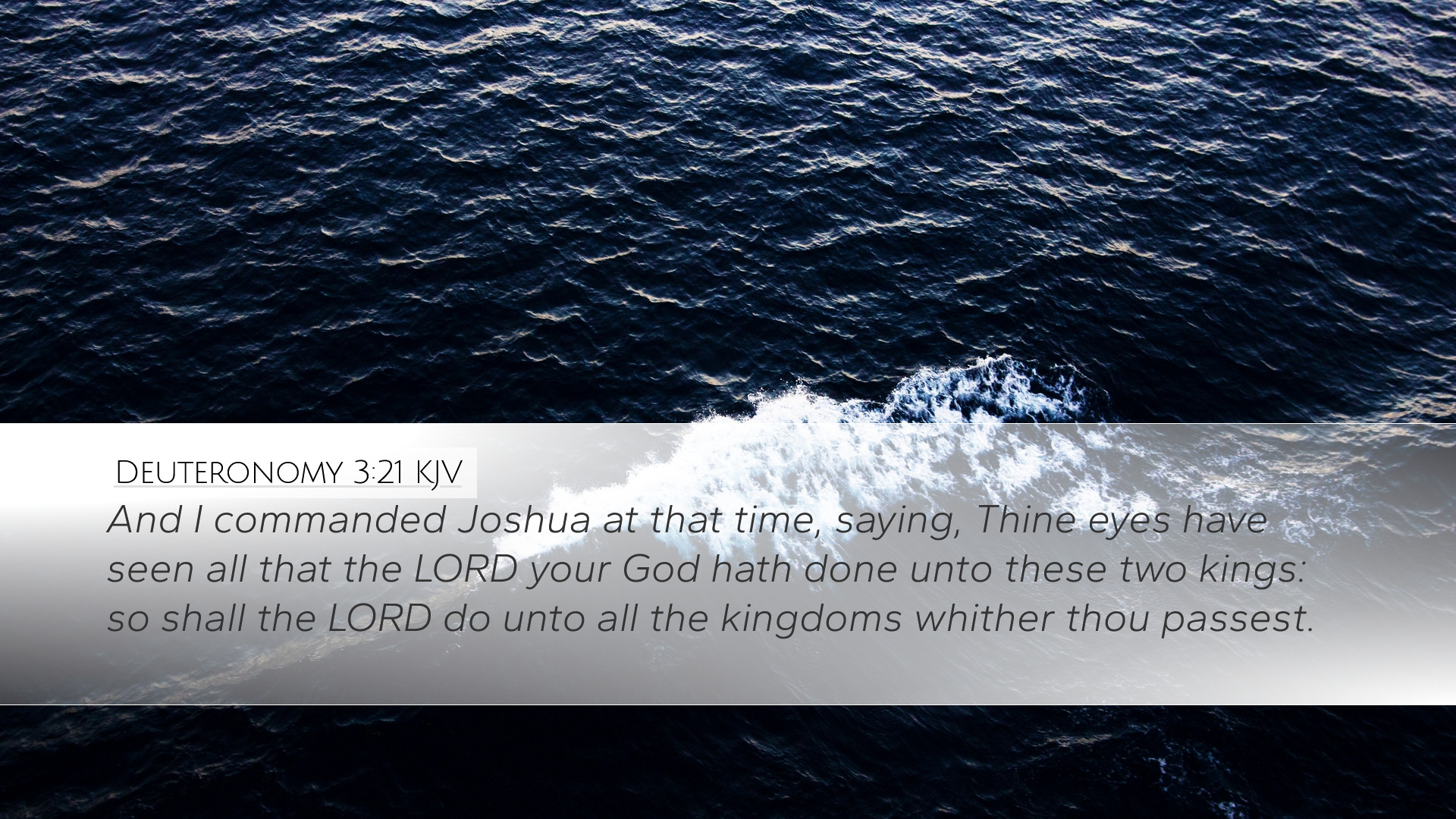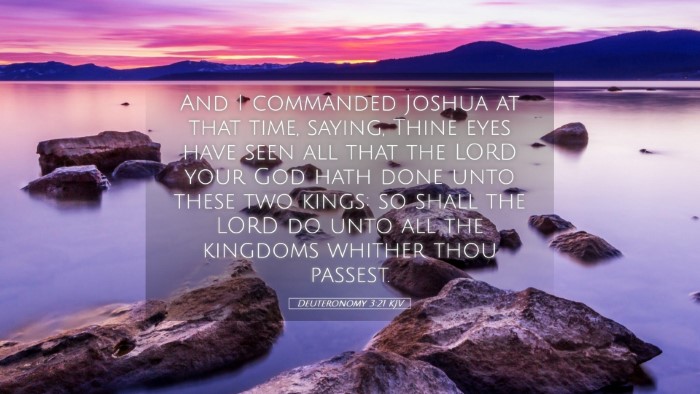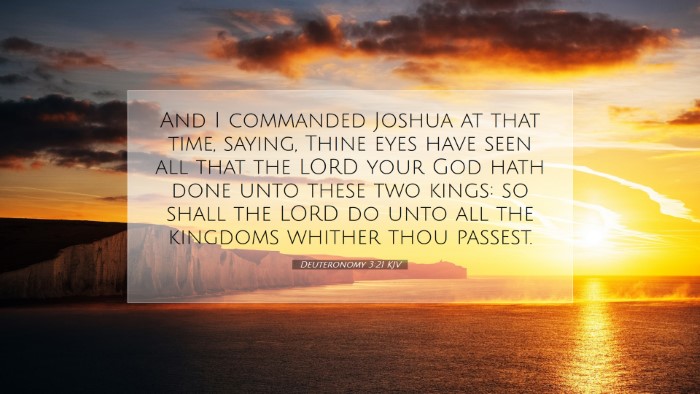Commentary on Deuteronomy 3:21
Verse Context: Deuteronomy 3:21 states, “And I commanded Joshua at that time, saying, ‘Your eyes have seen all that the LORD your God has done unto these two kings: so shall the LORD do unto all the kingdoms whither thou goest over.’” This verse occurs in the context of Moses addressing the Israelites as they prepare to enter the Promised Land, emphasizing the assurance of God’s continued support and the power available to them through faith.
Commentary Insights
1. Historical Context
This verse appears in a pivotal moment where Moses recounts the victories over Sihon and Og, the kings of the Amorites. These accounts are significant for Israel’s national memory and theological identity. Matthew Henry notes that Moses seeks to strengthen Joshua's courage, reminding him of the tangible victories they have witnessed through God's intervention. This historical reflection serves not merely as a recounting of events but as a foundation for faith moving forward.
2. The Command to Joshua
Moses' command to Joshua is not a mere suggestion but a directive laden with expectations. According to Albert Barnes, this charge indicates that Joshua had a significant role in leading the Israelites into the conquest of Canaan. Joshua's leadership would be rooted in the acknowledgment of God's past faithfulness, which inspires confidence for future endeavors. This principle applies universally: leaders are often shaped by their historical contexts and the faithfulness they have observed.
3. Assurance of Divine Support
The promise encapsulated in Moses’ words holds profound theological significance. Adam Clarke elucidates that just as God had delivered Israel from formidable foes, similarly, He would continue to do so as they faced the kingdoms of Canaan. This reassurance underscores the character of God as a Warfare God, who actively engages on behalf of His people. The repeated emphasis on “God’s deeds” serves as a reminder of His immutable nature and the overarching narrative of divine intervention in human affairs.
4. Faith and Assurance
The exhortation Moses gives Joshua invites reflection on the nature of faith. It becomes clear that sight (in the sense of witnessing God’s hand at work) instills courage. Matthew Henry encapsulates this by suggesting that seeing God's past victories fortifies our resolve against future challenges. Faith is thus depicted not merely as belief but as an active recollection and expectation of the truth of God’s character and promises.
5. Application for Today's Believers
This verse speaks profoundly to contemporary believers, whether they lead congregations or navigate their personal faith journeys. The reminder to look back on the “kings” that God has helped us defeat invites believers to reflect on their own testimonies of God’s faithfulness. In facing new challenges, whether they be sin, societal pressures, or personal struggles, the assurance that God will continue to fight alongside His people holds both comforting and empowering implications.
6. The Role of Memory in Faith
Moses’ remembrances serve a critical function in both individual and collective memory. Albert Barnes suggests that memory acts as a stabilizing force in faith, giving believers a historical perspective that undergirds their current challenges. It beckons them to recognize the nature of God as consistent and dependable, encouraging anticipation for His continuing intervention in real-world affairs.
7. Transition of Leadership
The prominence of Joshua in this passage is noteworthy. He represents not just a successor but the embodiment of God's promises for Israel's future. Clarke points out that Moses’ acknowledgment of Joshua's role is crucial, particularly as leadership transitions are often fraught with uncertainty. The narrative communicates a divine continuity even amidst change, providing a model for how believers can trust God through generational transitions.
Conclusion
In summary, Deuteronomy 3:21 conveys a rich tapestry of theological, historical, and personal insights. As pastors, students, theologians, and scholars meditate on this verse, it serves as a reminder of the unchanging nature of God amidst the changing landscapes of life. The calls to remembrance, the assurance of God's support, and the invitation to lead with confidence collectively serve to encourage those involved in ministry and scholarship to pursue their call with the understanding that the God who has been faithful in the past will continue to be their strength and guidance in the future.


